We’ve recognized Oscar-worthy genre talent in front of the camera; let’s go behind the camera to look at snubbed visionary directors.
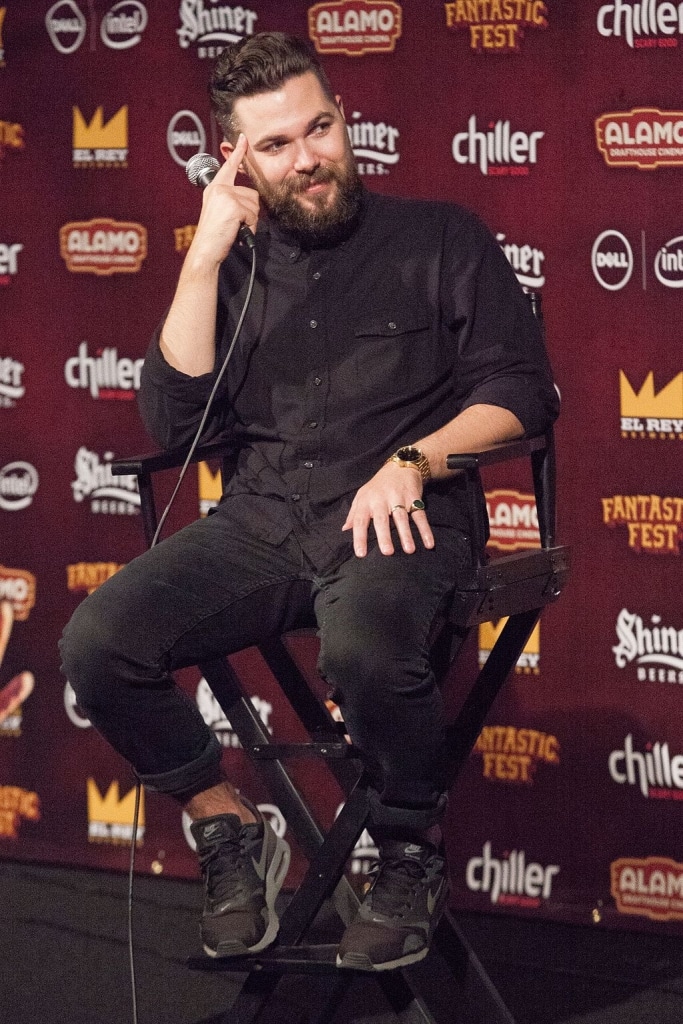
“Robert Eggers – The Witch, Fantastic Fest 2015-1667 (28894993650)” by Anna Hanks from Austin, Texas, USA, is licensed under CC BY 2.0.
I’ve taken a look at those meant to be in front of the camera, the performers — actors and actresses — who bring characters to life and should have taken home recognition for it. Now, it’s time to look behind the camera at the men and women who have designed and shot fantastic worlds, stories, and characters but were never rewarded.
Here, I am examining some past and present films and directors that should have had more genre and mainstream recognition from the awards circuit and have been failed by popular culture. Hitchcock himself never won an Oscar formally but was given an honorary award in 1968 along with nominations for Psycho. Similarly, Darren Aronofsky of Black Swan fame was nominated for Black Swan, famously losing despite the film’s splash reception, but receiving nods for other films such as The Whale, The Wrestler, and Requiem for a Dream, showing a pattern that once directors leave the genre, they tend to be rewarded.
I’d like to examine some older and newer directors and films that completely evaded the Academy and, sometimes, were ignored by institutions meant to recognize films in alternative genres.
While I’m sure there are many worthy names, here are ten Oscar-worthy directors who still haven’t heard their names called.
1. John Carpenter
A certified horror chief, John Carpenter can be linked to influential and culturally historic films, such as the Stephen King adaptation of Christine, the wonderfully wild game of paranoia that is The Thing, and the genre-redefining juggernaut that is Halloween.
Having been making films on his own since he was a child, Carpenter has always seemed to navigate his way behind a camera. His inventive style and power to never shy away have led to timeless visuals and moments in film history that live on into the present, still influencing each new generation of filmmakers in and out of the genre. He is widely acknowledged as a master of his craft.
His directorial style is marked by minimalist lighting and photography, with a penchant for panoramic and wide shots, as well as his proclivity to write his own scores, usually heavily influenced by synth and piano, and part of why we have iconic scores such as Halloween’s main theme.
He has received absolutely no recognition for his directing by the Academy, with an astounding zero Best Director Oscar nominations for any of his films. While his feature Starman received an award for Best Actor, Carpenter was noticeably left off the list again.
I believe the most egregious oversight of his achievements was the lack of accolades given to The Thing, not just for direction but overlooking its cutting-edge effects that were unmatched for the time. Ignoring body-bending transformation that required expert effects and makeup, the Academy must have found the film distasteful in its malformed glory.
Though the Academy has evaded him, Carpenter has received a couple of lifetime achievement awards from other organizations. In 1996, he was given the George Pal Memorial Award in conjunction with The Saturn Awards, recognizing exemplary work in various areas of film. More recently, in 2019, he was honored at the Cannes Film Festival, where the French Director’s Guild awarded him the Golden Coach Award, praising Carpenter as a creative genius of “raw, fantastic, and spectacular emotion.”
It was an appropriate award for a man who’s been making us terrified and curious for decades with his legendary, otherworldly stories; I fear Carpenter will never get the mainstream acknowledgment he deserves.
2. Wes Craven
A conjurer of the legendary and disturbing, Wes Craven has delivered cult classics that have spawned many sequels, remakes, and tributes over the years as he’s built an impressive horror career beginning in the late 70s.
Craven’s most well-known films are The Hills Have Eyes, A Nightmare on Elm Street, The People Under the Stairs, and, of course, the Scream franchise.
Showing a deep level of introspection, Craven’s works tend to hit closer to home, exploring dreamy or meta aspects of reality, breaking down family structures and dynamics, and often doing so with a dose of black comedy and satire. His comedic and horrific stylings have crafted a unique calling card of laughs and screams, from the award-worthy makeup of A Nightmare on Elm Street to the attention-grabbing writing of Scream, which grips you from its first iconic introductory scene.
As far as my research goes, he is also the creator of the infamous “horror rules” referenced from recent cultural sensations like The Blackening and more directly explained in the box office smash Cabin in the Woods. A very familiar, meta tale of adolescent hijinks that I often see as a love letter to Scream’s surviving characters, Randy and Sidney, reflected in the final characters of Dana and Marty.
The Academy has never acknowledged Craven’s works from the early and the strange to the late and the groundbreaking, and it’s an incomprehensible Oscar snub.
Prior to Scream, the Saturn Awards bestowed the Life Career Award to Craven, acknowledging his contributions to the genre and putting him in a category of achievement alongside Vincent Price and Alfred Hitchcock. Craven would receive a Saturn Award nomination for his direction in Scream in 1997, but even the Chainsaw Awards would evade him for his work that year.
It seems Craven is a man ahead of his time, directing the first four Scream films and developing Nightmare on Elm Street’s legacy, learning and writing the rules for horror, and bringing the franchises into the 21st century with ease.
Like most who see ahead, Craven was not rewarded for his sharp wit and understanding of the past, present, and future of the genre and, for this, will likely never conform to or satisfy the demands of the mainstream award circuit.
3. David Cronenberg
A maestro considered one of the most innovative minds of 20th-century film and the credited creator of the subgenre of “biological horror,” David Cronenberg is a singular mind when it comes to film.
His early works, such as Shivers and Videodrome, established his style in the late 70s and early 80s as he developed his characteristic visuals. Followed shortly by The Dead Zone, Cronenberg’s most famous film, The Fly, would debut in 1986 and define body horror and the power of practical effects.
With mostly positive reception, there were no awards on the horizon for the daring premise of The Fly, and Cronenberg walked away with only a Saturn Award nomination for his directing.
His focus turned for some decades after his stint in the horror and science fiction realms, expanding into powerful dramas such as A History of Violence and Eastern Promises. While A History of Violence garnered two Oscar nominations and Eastern Promises was nominated for one, it was mostly the films’ performances that garnered attention instead of its director.
To the delight of fans, Cronenberg recently returned to the body horror genre for the 2022 feature Crimes of the Future, revisiting his roots and returning to daring visuals and disturbing storylines.
Though he has received more Oscar attention than some on this list, it’s clear that Cronenberg needed to depart from his beginnings to be recognized by the Academy for his work in more acceptable genres with more marketable actors.
A staple for the genre and an accomplished director who demonstrates once-in-a-lifetime ingenuity, Cronenberg’s filmmaking skills deserve to be recognized for the varying worlds he has created and for inventing and perfecting a subgenre within horror all his own.
4. Dario Argento
After a career that started in the mid-1960s and dozens of classics to his name, none of Argento’s films have received any major recognition despite his impressive credits in the giallo subgenre as well as the nickname “The Italian Hitchcock.”
Becoming known first for his films such as The Bird with the Crystal Plumage, The Cat o’ Nine Tails, and Deep Red, Argento would go on to direct one of the most iconic films in horror history: Suspiria.
Astoundingly colorful, undeniably magical, and groundbreaking, Suspiria was a celebration of womanhood, violence, and the human shape in its most beautiful and mangled forms. Argento’s style lends itself to “voyeuristic camerawork,” intense closeups and use of color, and sets of extreme violence, unsurprising trademarks for a former giallo master.
With no Saturn Awards and no Chainsaw Awards, Argento has been locked out of even genre recognition.
He has received Italian Golden Globes, but even in the genre he’s most closely associated with, the judges have no interest in even retroactive nomination.
Suspiria has been remade since by Luca Guadagnino, reaffirming its place as a horror staple and recreating the psychedelic pirouetting plot with new players. While Argento has continued to direct, recently adding the title Dark Glasses to his resume, it’s doubtful this horror master will ever receive a golden statue as he still hasn’t gotten the rightful recognition of his peers.
Argento, I think, is at the top of the list of Oscar snubs for his genre work especially, and Suspiria will, unfortunately, be lost to the world of remakes, which, despite its quality, did not get a second look to grant Argento one more chance at recognition for could be considered his masterpiece.
5. James Whale
The creator of three of the most iconic horror films of all time and one of the founders of the genre, James Whale is a legend. Debuting with Journey’s End in 1930, Frankenstein would reach audiences just one year later in 1931.
A commercial success generally well received by the public and a groundbreaking adaptation of Mary Shelley’s landmark work, Frankenstein is one of the fathers of the monster movie genre and one of the first major horror films, period.
Two years later, Whale would bring about one of the most notorious serial killers (chronicled on our lists as one of the most prolific horror killers of all time), The Invisible Man. A madcap concept as well received as Frankenstein, Whale would go on to make other classics such as Bride of Frankenstein and The Man in the Iron Mask.
Known for making risky decisions and venturing into new territory, moves like casting Boris Karloff instead of Bela Lugosi for the role of Frankenstein would be decisions that would make him notoriously exciting and unpredictable up until his tragic end.
Whale has virtually no awards to his name.
His few nominations and wins for films such as Frankenstein and The Invisible Man were recognized at the Venice Film Festival, and Bride of Frankenstein was named the 2010 winner of The Guardian’s Best Films of All Time for the horror category — and actually did earn an Oscar nod in 1936 for Best Sound Recording (though it did not win).
Another retroactive honor came from the Saturn Awards, which acknowledged Frankenstein, The Invisible Man, and Bride of Frankenstein as part of the “Universal Classic Monsters” Collection and part of the best DVD Collection of 2013, nominated again for the same honor in 2015.
Though the Academy never acknowledged the directing genius that brought these monsters to life and reshaped film and the growing popularity of a questionable new genre, all three films have been inducted into the National Film Registry, preserving their historical and cultural contributions and canonizing them and Whale for eternity.
6. Alejandro Amenábar
In 2001, one of the landmark horror movies of the time would be presented, starring Nicole Kidman in an unforgettable role no less, and received not one nomination.
The Others was a ghost story, tried and true, and a story of a mother’s unending love; a dimly lit tale of grief and fear with one of the most shocking endings to grace us at the time. Emotional, atmospheric, and mysterious, The Others was an enthralling film made by Spanish-Chilean director Amenabar, who draws influence from “classic terror movies” to design “tension-filled psychological thrillers.”
His single-location ghost story puts the whole audience in the haunted house, creating a disturbing and compelling watch.
The most impressive recognition came from BAFTA, which nominated the film for best original screenplay, and on top of this, the Saturn Awards were there to recognize Amenabar at least, nominating him for both writing and directing The Others, though he didn’t take home any of the prizes.
(The film itself did win Best Horror Film in 2002, along with a Best Actress win for Kidman, well deserved, along with a Golden Globe nomination.)
Fangoria shockingly shied away from The Others, nominating it for best wide release film and once again awarding Kidman for her performance, but ignoring the direction it took to arrive here.
The Others is a masterpiece recognized by the genre as well as by judges at BAFTA. It managed to break into some major award categories due to the performance of its lead, and still, the directorial work on The Others went largely unnoticed. The film, which could have earned Kidman an Oscar nod, was left out of the running — a historic pity.
Amenábar has won nine Goyas, Spain’s principal national film awards (comparable to an Oscar) — including a Goya Award for Best Director for The Others. So, while America failed to laud his talents, his home country did not make that mistake. He also did finally nab his Oscar for Best Foreign Language Film for, you guessed it, his non-genre work on a Spanish psychological drama film called The Sea Inside.
7. Mike Flanagan
Mike Flanagan is an imaginative talent delivering recreations of old favorites to the big screen and adaptations turned into stunning originals on the small screen. With Flanagan, this becomes an exploration of both shocking Oscar and Emmy snubs.
Director of films and television Mike Flanagan has crafted beautiful, unique horror films for many years now, dating back to cult features like Oculus and Hush to the more recent, more dramatic horror pursuits in the recreation of Stephen King’s work in Gerald’s Game and Doctor Sleep.
Flanagan is known to stick to his psychological horror roots, injecting tension and passion, weaving dynamic character relationships, usually with a bittersweet conclusion.
Doctor Sleep was a triumph, bringing Ewan McGregor and Rebecca Ferguson, two massive talents, toe to toe for and standoff at the Overlook Hotel. It was a worthy conclusion to the mysterious and underappreciated Shining saga.
Doctor Sleep was a striking, dreamlike tale that brought us back to the powers that surround the shining, creating unforgettable new heroes and villains, namely a well-loved but underappreciated Rose the Hat (who only won a Chainsaw Award for her portrayal). With the amount of funding, advertising, and influence behind Doctor Sleep, I was shocked that not even a performance or screenplay was nominated for its brilliance.
Flanagan has been criminally neglected on the awards circuit for both his filmmaking and his television series. Doctor Sleep received no nominations from the Academy come Oscar time or other mainstream award circuits, overlooking the achievements of its cast and its visionary director.
Similarly, Flanagan’s hit television series, The Haunting of Bly Manor and Midnight Mass, which are critically acclaimed and widely loved, have never received an Emmy nod. Flanagan has become one of the most popular voices in horror, churning out creative, adapted content like his latest sensation, The Fall of the House of Usher.
The Chainsaw Awards have recognized Flanagan’s recent and past work, nominating him for Best Director and Best Screenplay for Doctor Sleep. They also nominated him for Best Screenplay in 2015 for Oculus, which took home the award for Best Wide Release Film that year.
The Saturn Awards, however, did recognize Flanagan’s achievement in an appropriately grand way. While Doctor Sleep was nominated (but did not win) for Best Director, Best Writing, and Best Editing, Flanagan walked away with one of the organization’s most coveted honors: The Visionary Award. One of the most special honors, it is given to a select few filmmakers that “push the boundaries of cinematic storytelling,” a perfect descriptor for Flanagan’s work.
With Flanagan’s latest work on The Fall of the House of Usher failing to earn him his first Emmy nomination, I might just have to start working on some conspiracy theories surrounding his inexcusable exclusion.
8. Jennifer Kent
I believe Kent should have received several nominations for The Babadook, but the Academy avoided the emotionally raw and terrifying journey of the film.
Kent is one of the less experienced directors on the list, with The Babadook being her feature directorial debut. However, the fact that this was her debut makes what she was able to accomplish with the film all the more impressive and deserving of recognition, similar to the love Jordan Peele received for his dazzling debut Get Out.
Since then, Kent has directed another feature called The Nightingale and has been featured on popular, award-winning shows such as Guillermo del Toro’s Cabinet of Curiosities.
Her work is sparse compared to some of the other horror masters on this list, but she created one of the most memorable monsters in modern horror history coupled with a heartbreaking tale of mother and son.
The Saturn Awards took no notice of The Babadook, while the Chainsaw Awards gave it Best Screenplay and Best Limited Release — but no acknowledgment for directing.
Another introspective soul, Kent looks inward and focuses on the development and interactions of her characters rather than purely setting up scares. Influenced by the black and white films of yore, The Babadook wasn’t initially going to be in color, but we see from the picture book and the monster itself that Kent’s monochrome vision for her monster still found its place — with hardly a trace of CGI, as Kent felt inserting things during editing would dull the scares.
With an Oscar-worthy performance from Essie Davis, an emotional and creative screenplay, and minimally lit, claustrophobic cinematography, The Babadook had many extraordinary things to recognize, yet the world chose to look away from Kent’s creation.
A snub from even some genre enthusiasts, The Babadook remains a cult hit and cultural examination of grief and trauma that deserved more attention than it received… especially for its creator.
9. Ari Aster
A modern horror master who’s delivered eccentric, unforgettable titles, Ari Aster has created fascinating worlds with star-studded casts and powerful stories.
With films such as Hereditary, Midsommar, and most recently, Beau is Afraid, Aster has a distinct voice and designs interesting characters and memorable storylines coupled with incredible visuals.
Having co-founded the production company Square Peg with Danish producer Lars Knudsen, Aster was freer to explore his filmmaking style, debuting his first feature the same year. Known for whimsical stories, an unsettling combination of horror and dark comedy or levity, and a knack for depicting graphic violence, Aster is a bloody dreamer as he invents these dark tales and designs their presentations.
Aster has received no Oscar nominations for his work directing — an unforgivable snub for heartfelt, horrifying, and unique pieces such as Hereditary that deliver such new perspectives and ideas.
Toni Collette was widely considered to have been snubbed for her legendary performance in the film, and Florence Pugh was similarly ignored at Oscar time for her ranged and passionate performance in Midsommar.
Fortunately, The Saturn Awards took note of Aster’s achievements in Hereditary, presenting him the Legion M Breakout Director Award for the film in 2019. The Chainsaw Awards were quick to acknowledge Aster for both Midsommar and Hereditary, awarding him best director for both films as well as picking up wins for best screenplays. Beau is Afraid, another strange entry highlighted by a landmark performance by Joaquin Phoenix, received virtually no attention despite a positive reception and outlandish portrayals delivered perfectly.
Aster is still very new to the mainstream scene and is impressing genre enthusiasts and receiving awards for his work in horror; it’s possible that with only three widely known films released in rapid-fire succession, he will be working on many more stories to come.
If his remarkable start right out of the gate with his trio of powerful debut features is any indication, he will continue to deliver more jaw-dropping and deeply affecting art that will be impossible for the Academy to ignore forever.
10. Robert Eggers
Penning unbelievable period pieces showcasing powerhouse performances from its stars, Eggers is the new king of time-traveling cinema, drawing us into his monochrome worlds of devil worship, madness, and revenge.
Eggers has directed a few noteworthy films, beginning with the one that got people’s attention, his feature-length debut, The Witch, starring a budding Anya Taylor Joy and a goat named Black Philip. It’s a film that stirred audiences with its atmosphere and dark story and ushered in the age of A24 and “elevated” horror.
The Witch would be followed by the equally compelling The Lighthouse, a black-and-white horror drama starring Willem Dafoe and Robert Pattinson. The two would create unforgettable chemistry and tell a dark tale of the longest storm and the torment of trapped men.
Most recently, Eggers moved away from horror to tell an epic Viking tale in The Northman, bringing back Taylor Joy and featuring a vengeful Alexander Skarsgard with a celebrity-packed cast and a larger-than-life tale of retribution.
Known for his meditative storytelling and character development, Eggers is a storyteller at heart, avoiding monsters and jump scares for more slow-building, personal terror tied into well-developed players.
Not letting a previously small filmography stop him from breaking into the top echelons of horror creators, Eggers has yet to be rewarded for his Herculean efforts. The Saturn Awards chose to pass over Eggers’ offerings on all three occasions, and the Chainsaw Awards only offered up a nomination of Best Director for his work on The Lighthouse.
It’s strange because, at first glance, his work looks like quintessential Oscar bait.
The Witch was a beautiful, methodically paced period piece stirring up evil in a young girl and featuring rising (now well-established) talent. The Northman was large-scale filmmaking with big budgets, cast, and marketing to make it a contender. Sadly, neither of these stories resonated with the Oscars or the Saturn Awards, leaving Eggers on the sidelines for the award circuit for now.
However, it seems Eggers will be returning to his roots with a remake of the classic Nosferatu (now in post-production) and an impressive list of names to supplement the cast. Perhaps this will be an attempt that will draw in more curious eyes from both genre enthusiasts and those looking to pay tribute to the horror history Eggers is striving to recreate.


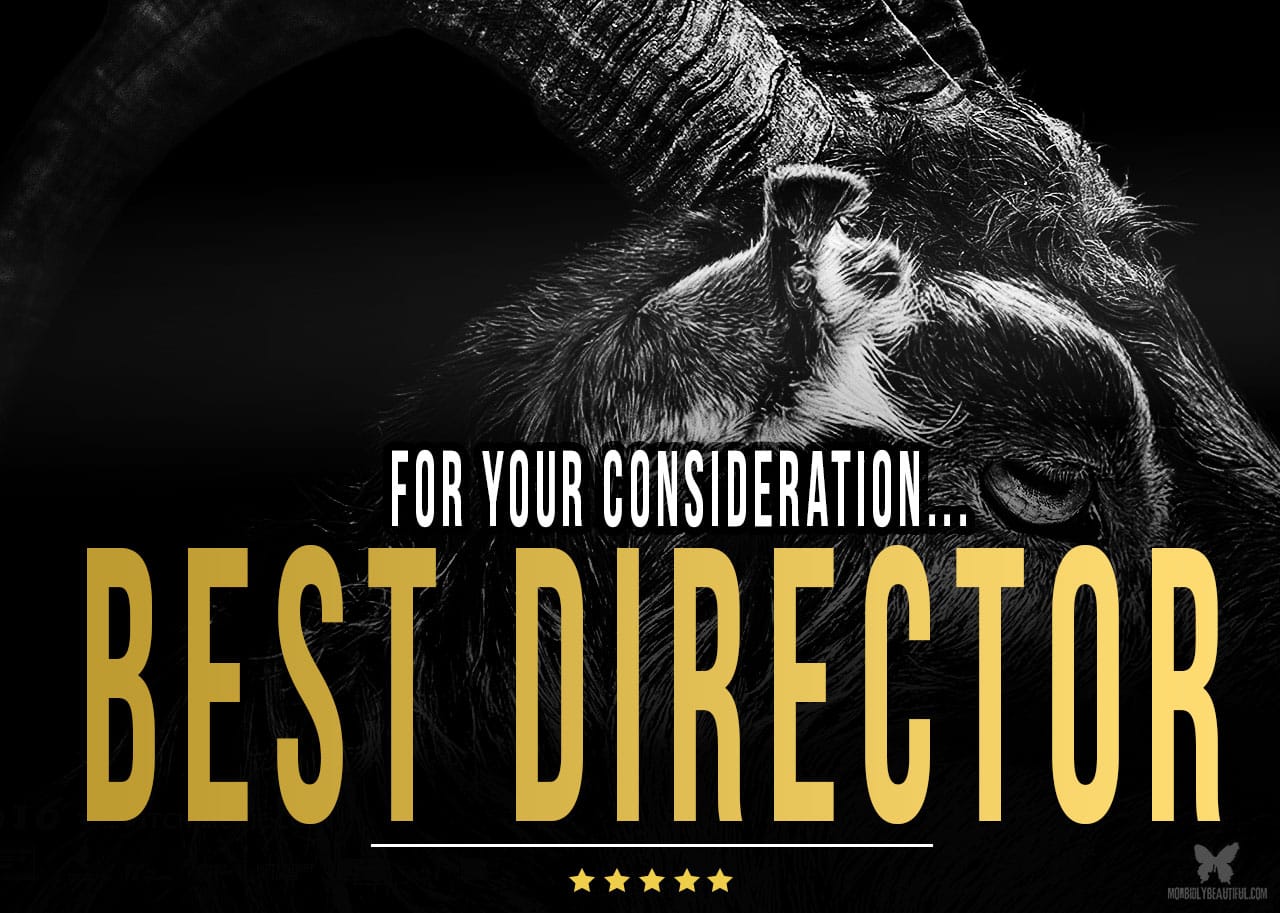
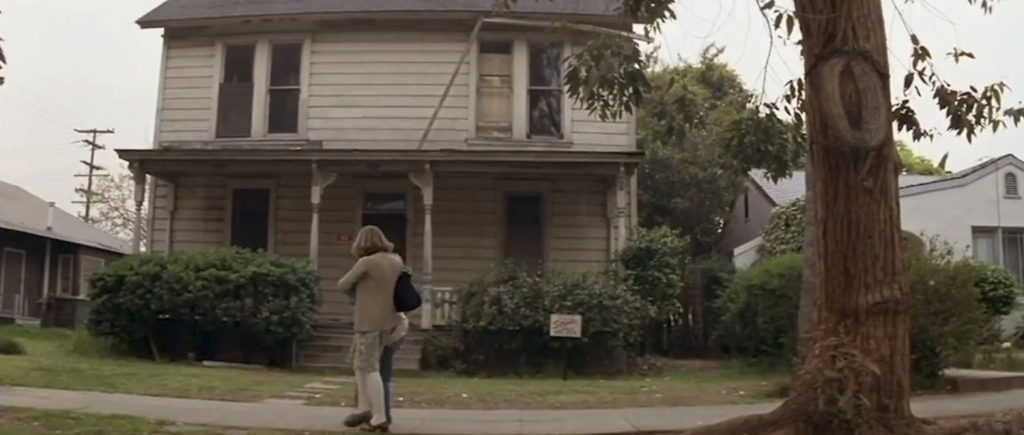
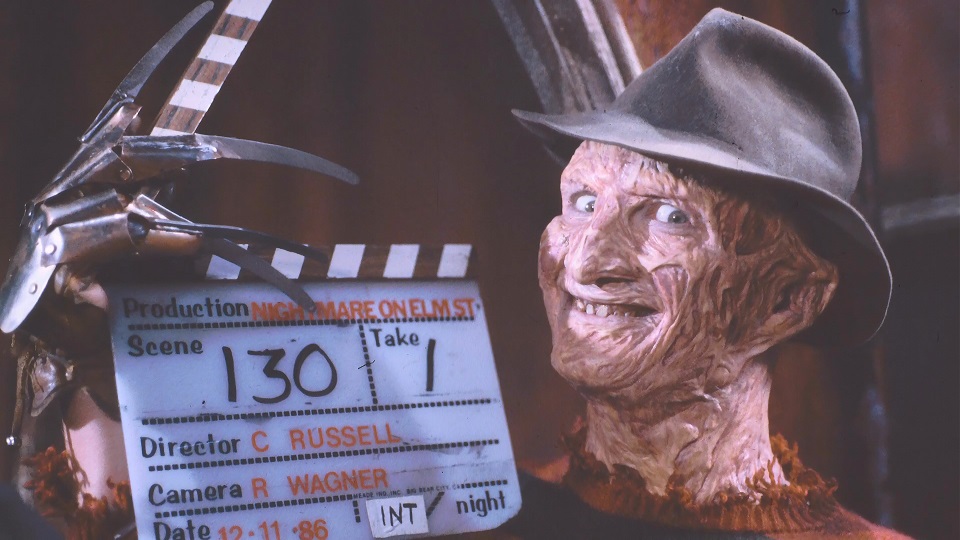

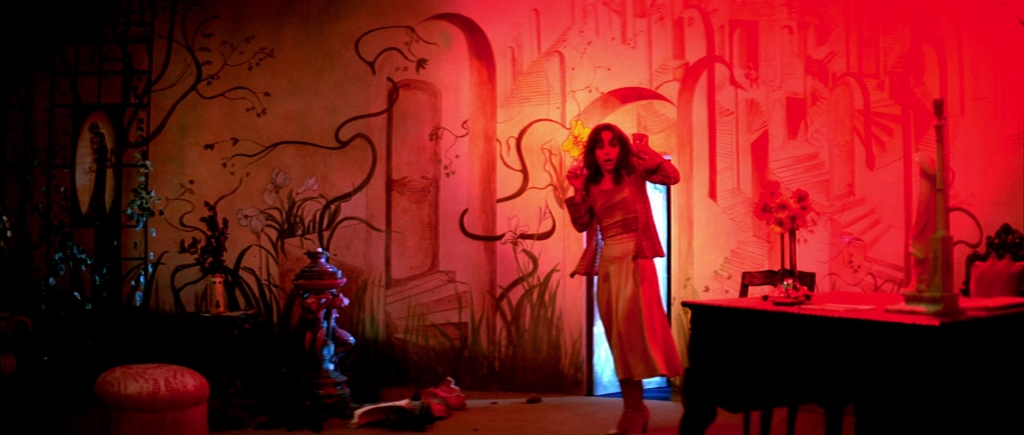
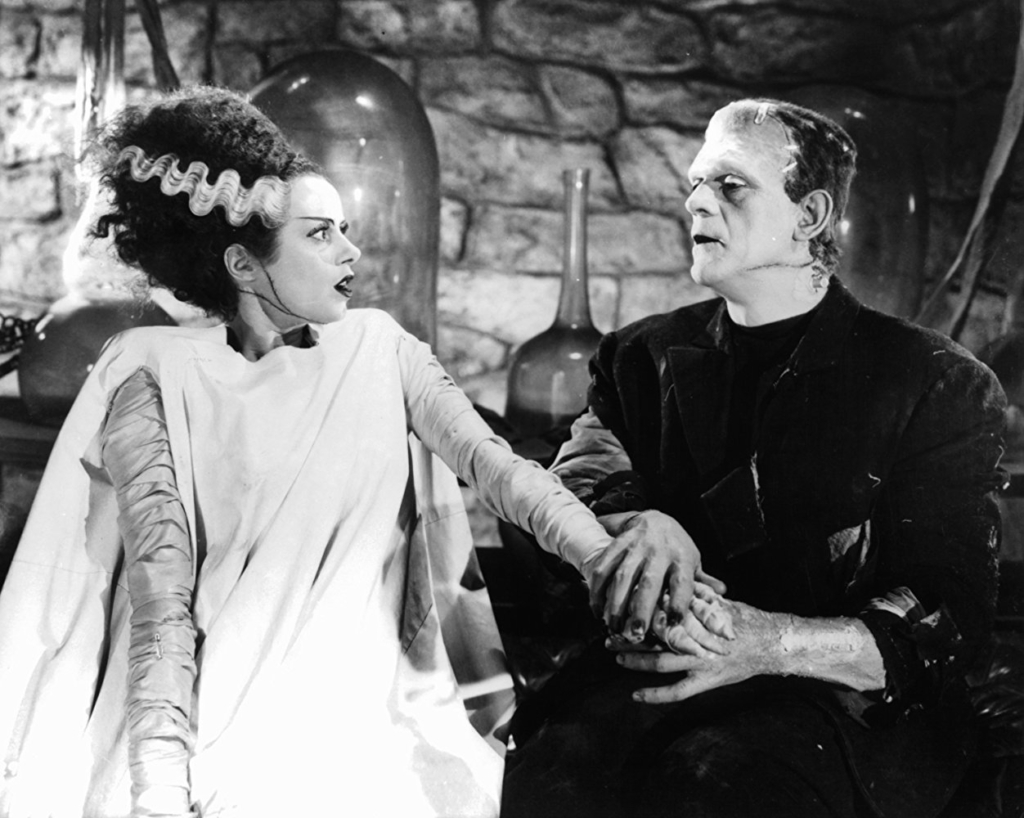
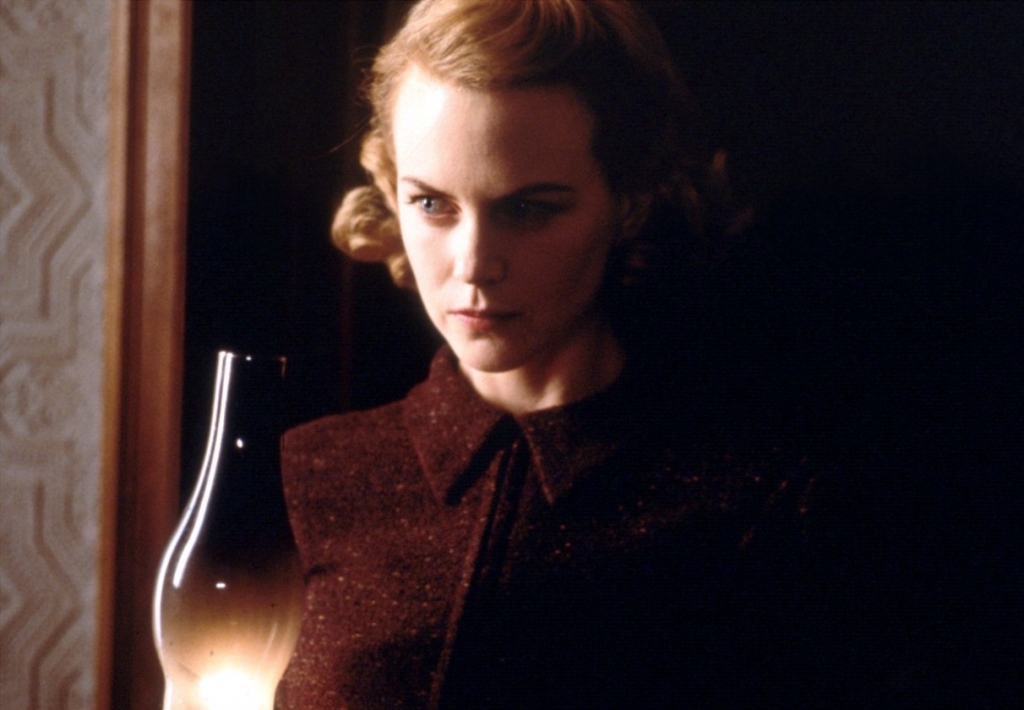
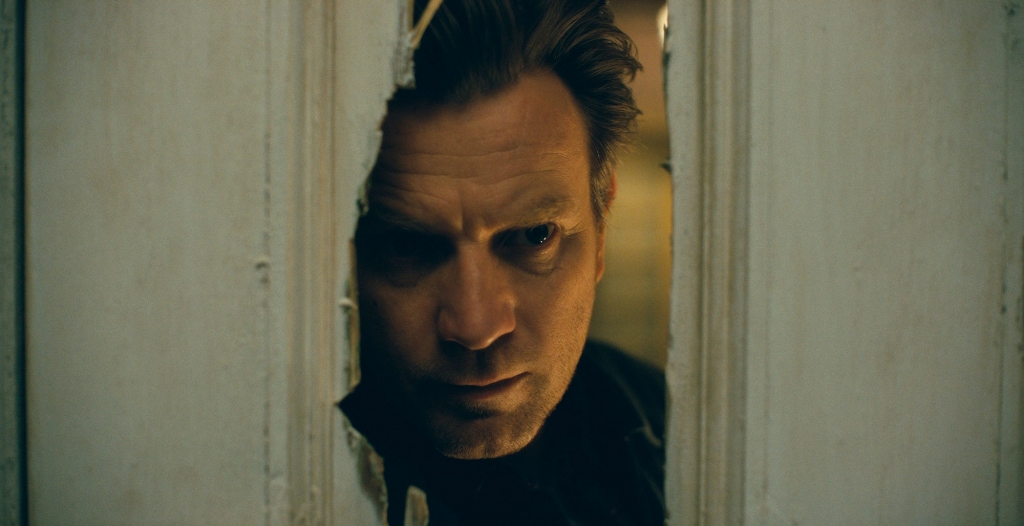
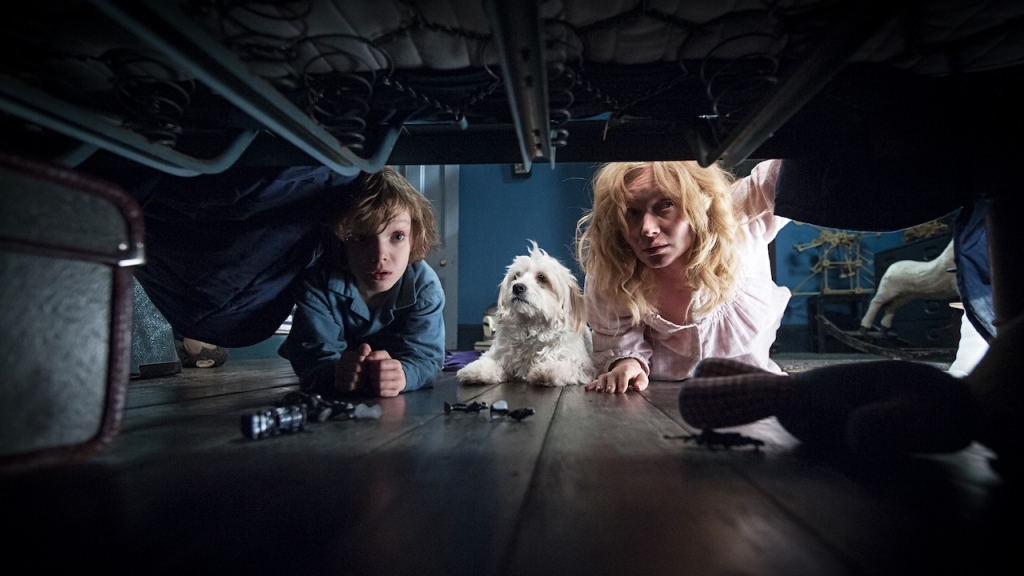

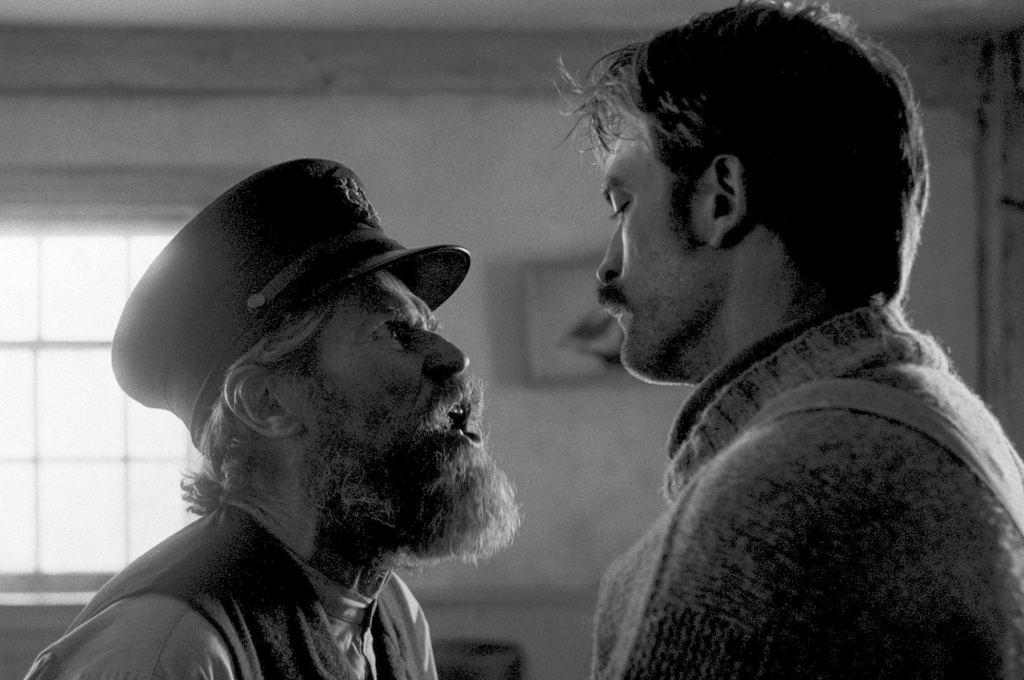



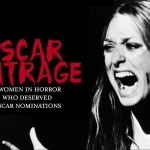







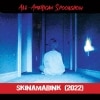
Follow Us!